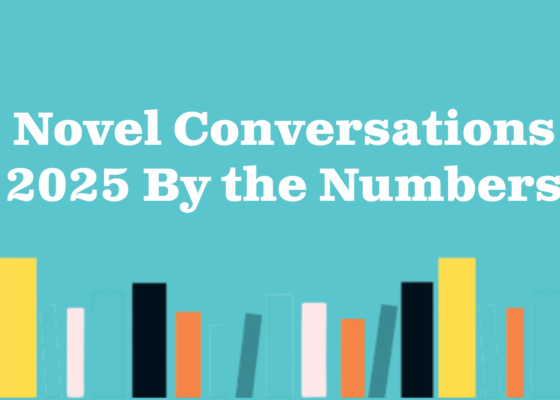Poetry in Our Times: What a Year it Has Been
April 7, 2021A year ago, in honor of National Poetry Month, I asked a number of Indiana writers to respond to the question of how and why poetry matters in their lives….
A year ago, in honor of National Poetry Month, I asked a number of Indiana writers to respond to the question of how and why poetry matters in their lives. What a year it has been! I decided this April to pose a more specific question to several past Indiana Poets Laureate:
How important has Amanda Gorman’s inauguration poem, “The Hill We Climb,” been to the revitalization of American poetry? To the health of our nation?
Shari Wagner, Indiana Poet Laureate 2016-2017
On January 20th, a young poet on the steps of the Capitol used her compelling words to draw forth light. Amanda Gorman stood in a place that had been shadowed only a few weeks earlier by rioters bent on overturning the election, and she brilliantly and poignantly applied techniques of spoken word poetry to invoke the dawn of a new day. “The Hill We Climb” begins with the question, “Where can we find light in this never-ending shade?” By the end of the poem, we learn that we will become the bold, inclusive light we seek. We will rise above the horizon; we will emerge from every “nook of the nation,” “diverse and beautiful,” “aflame and unafraid.”
How important is “The Hill We Climb” to the revitalization of American poetry? The question begs the belief that American poetry is now in a less than vigorous condition. However, from what I observe, our poets, spoken word and otherwise, are keenly concerned with issues of social and racial justice, the plight of the environment and many timely as well as timeless concerns about what it means to be human. This also seems true to me on the local level. The Golden Age of Indiana Literature is commonly recognized as the period between 1880 and 1920, but I believe we’re living in that age right now, at least with regard to poetry. We have so many amazing wordsmiths in our midst, from every corner of the state. These poets reflect rich, diverse backgrounds and voices; they express with great skill urgent and universal concerns.
George Kalamaras, Indiana Poet Laureate 2014-2015
Amanda Gorman’s poem, “The Hill We Climb,” has been important to revitalizing poetry mostly among those who lack familiarity with poetry—that, in itself, is quite an achievement. From appearances on The Daily Show (with Trevor Noah), to The Late Late Show (with James Corden), and stops in-between, Amanda Gorman has increased interest in poetry across several age groups and dazzled interviewers with her intelligence, generosity and genuineness.
I imagine that her poetry will resonate particularly with young people, as they will be able to see themselves and their dreams in her optimistic voice and desire to foster a better world. Hopefully, such an introduction to poetry will increase interest among people to explore poetry in depth and to discover the many often lesser-known and extraordinary voices that have emerged over the years to gift the world with words. Thus, Ms. Gorman’s youthful energy, ebullience and generosity offer the non-poetry communities a significant “open door” to an extraordinary world of study and practice that I hope many people will walk through, explore and immerse themselves in.
Karen Kovacik, Indiana Poet Laureate 2012-2013
Amanda Gorman’s poem challenged and fortified and uplifted our nation just two weeks after the scurrilous attack on the U.S. Capitol. Rousingly delivered, “The Hill We Climb” used iconic imagery and a compelling cadence to knit us together as a people, while also acknowledging that we all have to “be brave enough” to work for the light of justice and to be that light to one another.
The first part of the question implies that American poetry needs revitalization. Keep in mind that Gorman’s poem included nods to, among others, Maya Angelou, Langston Hughes and Lin-Manuel Miranda—vital poets all. But her shining poem surely has inspired new writers to take up the pen, and her example will ensure that the art of poetry remains central to American identity, to our search for a more perfect union.
Joyce Brinkman, Indiana Poet Laureate 2002-2008
Having spent time in the political arena, I can emphatically say it was politically smart for the oldest person ever to be inaugurated as President of the United States to feature the youngest poet ever to read an inaugural poem at the Presidential swearing-in. It also reveals the new President’s humility when someone who has struggled with stuttering all of his life and is not thought of as a superb speaker chooses to share the stage with someone who delivers poetry so faultlessly. She was the perfect choice for President Biden but also the perfect choice for the country. She presented a clear, unequivocal message wrapped in the beauty of well-crafted words.
More to Matthew’s question, she was good for poetry not only because what she delivered she delivered so well, but because she delivered what the majority of Americans think is a poem. It had the music and rhyme of poetry; it had something to say to them; when it was about her, it was also about them. Amanda used her craft to let Americans enter into a moment of American history.
Matthew Graham is a Professor Emeritus of English at the University of Southern Indiana and is the author of four books of poetry, most recently, The Geography of Home.


